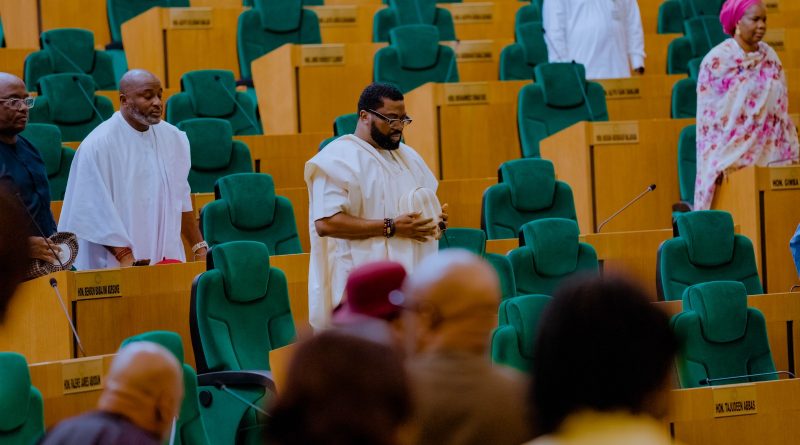Reps move to enshrine timely budget presentation in constitution, pass bill for second reading
The House of Representatives has passed, for second reading, a bill seeking to amend the 1999 Constitution to compel the President to present annual budget estimates to the National Assembly within a fixed timeframe.
The proposed legislation aims to institutionalise timely budget presentation and restore Nigeria’s January–December budget cycle, which has suffered disruptions since President Bola Tinubu assumed office in 2023.
Under the administration of the late President Muhammadu Buhari, the January–December budget cycle was strictly maintained for eight consecutive years, a practice widely praised for improving fiscal predictability and governance.
However, since 2023, that discipline has waned. For instance, the 2025 Appropriation Bill, expected to take effect in January, was not passed by the National Assembly until early this year, causing a slip in the fiscal calendar.
To address these recurring lapses, the House on Tuesday took a decisive step by passing for second reading the bill.
It is titled: “A Bill for an Act to Alter the Constitution of the Federal Republic of Nigeria, 1999, to ensure timely presentation of the annual budget estimates by the Executive to the Legislature; to enhance fiscal transparency by ensuring timely submission of audited financial statements to the legislature; to classify public expenditure under defined heads with prescribed ratios; and to provide for medium and long-term planning for infrastructure and human capital development at both the federal and state levels; and for related matters.”
The bill, sponsored by the Deputy Speaker, Benjamin Kalu, is designed to strengthen Nigeria’s fiscal governance framework and entrench accountability, transparency, and planning discipline into the nation’s budgeting process.
Leading the debate on behalf of the sponsor, Nkemkanma Kama (LP, Enugu) lamented the persistent flaws that have characterised Nigeria’s budgetary process for decades.
He cited chronic delays in the presentation and passage of annual budgets, discrepancies between approved budgets and audited accounts, and weak fiscal coordination between the federal and state governments as key challenges undermining effective financial management.
“From budgets being presented late and passed deep into the fiscal year, to Appropriation Acts that bear little resemblance to audited performance, to fragmented and non-transparent fiscal reporting at both the federal and state levels our budgeting process has for too long reflected inefficiency,” Mr Kama said.
He added that such inefficiencies not only hamper economic growth but also weaken public confidence in the government’s ability to manage public resources responsibly.
Mr Kama explained that the bill seeks to offer a structural remedy by embedding discipline, transparency, and long-term vision into the Constitution. It would compel the Executive to adhere to a clear fiscal calendar and ensure timely oversight of government spending.
The proposed amendment contains four key clauses and seeks to alter Sections 81 and 121 of the 1999 Constitution (as amended).
The bill proposes that the president must lay the annual budget estimates before a joint session of the National Assembly not later than the last working day of September each year.
This timeline would give the legislature sufficient time to scrutinise, debate, and pass the budget before the new fiscal year begins.
ALSO READ: FOR THE RECORD: Speaker Tajudeen’s remarks at 2025 budget presentation
Currently, the constitution merely provides that the President shall “cause to be prepared and laid before each House of the National Assembly” the estimates of revenue and expenditure for the following year without specifying a timeframe.
Mr Kama observed that this constitutional vagueness has allowed successive administrations to present budgets at varying times, sometimes only weeks before the fiscal year ends, leaving little room for meaningful legislative input.
He noted that the bill also aligns with global best practices where timely budget presentation is tied to fiscal discipline, transparency, and improved public accountability.
If passed and assented to, the proposed amendment would bind both the federal and state governments to a predictable fiscal calendar and enhance coordination in public finance management across all tiers of government.
The House subsequently referred the bill to the Committee on Constitutional Review for further legislative action.

